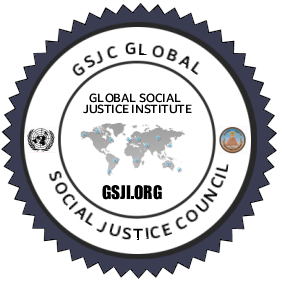GLOBAL SOCIAL JUSTICE INSTITUTE
2.4 The Security Council a. Powers and functions b. Human rights
| ||
Virus Justice Italian Freedom Day J23 History of Racism Book-HR Join Commission Ethics Badges Site Map Education Policy Agenda Top Social Justice Issues Anti Slavery Book Truth and Justice Commission USA Ethnic Justice Truth and Justice Commission * Anti Slavery Society - Election Intrigrity George Mentz Colorado Springs Coronavirus Biden Fault Negligence |
Accreditation Bodies: www.GAFM.com * www.GAFM.org * www.CertifiedProjectManager.eu * www.AAFM.org * Certified Project Manager * Certified e-Commerce Consultant * Royal Law Society * Royal Business Society * Royal Business College * Royal Fellows * Royal Economics Academy * Oxford Law School * AAFM * Certified International Project Manager *

